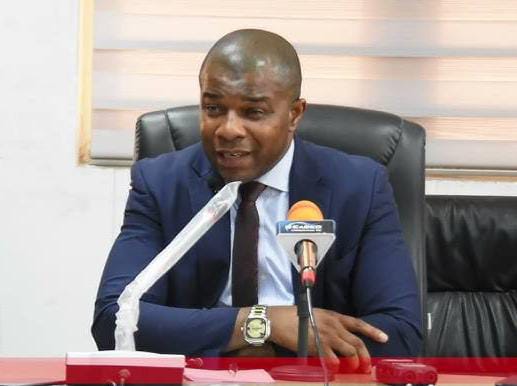The Council for the Regulation of Freight Forwarding in Nigeria (CRFFN) has restated its legal authority and commitment to reforming the freight forwarding industry, even as it played down the implications of a recent court ruling that has generated debate among stakeholders.
Speaking at a media briefing on Friday at the Conference Hall of the Nigeria Institute of Freight Forwarding (NIFF) in Abuja, the Registrar and Chief Executive Officer of the Council, Mr. Kingsley Igwe, stressed that the CRFFN remains empowered by its enabling Act — CRFFN Act No. 16 of 2007 — to regulate the freight forwarding profession and oversee the collection of the Practitioners Operating Fee (POF).
Mr. Igwe cautioned against misinterpretation of legal processes, warning that such acts could lead to disorder at port terminals and disrupt the progress already made within the industry. He emphasized that the Council’s regulatory powers are intact and should not be undermined by misinformation or factional interests.
Shifting the focus to the Council’s achievements, the Registrar said CRFFN has undergone a transformation, repositioning itself from a previously crisis-ridden institution to a more professional, transparent, and forward-looking regulatory body. He attributed these changes to internal reforms and the support of the Federal Government under President Bola Ahmed Tinubu’s administration.
“We have implemented structured administrative procedures that ensure transparency, accountability, and consistent service delivery,” Igwe noted. “The era of internal wrangling and policy confusion is behind us.”
Some of the major milestones shared by the Council include:
* Commissioning of the Zenith Carex Cold Chain Facility in Abuja, a key project supporting food security and pharmaceutical logistics.
* Rollout of a free nationwide capacity-building programme, which has trained thousands of freight forwarders on global standards, compliance, and digital tools.
* Launch of a digital and standardized freight logistics framework, aimed at creating a more efficient and tech-driven supply chain ecosystem.
* Strengthened stakeholder engagement, including partnerships with terminal operators, shipping lines, and relevant trade associations.
Mr. Igwe further called on industry players to prioritize unity and collaboration, warning against divisive politics and actions that could derail the sector’s growth. He urged associations and practitioners to rally behind the Council’s reforms for the collective advancement of the industry.
“This is a defining moment for freight forwarding in Nigeria,” he said. “What we need now is consolidation — not conflict. CRFFN is not just enforcing rules; we are building a system that works.”

The Registrar concluded by reaffirming CRFFN’s commitment to innovation, professionalism, and inclusivity, expressing optimism that with continued stakeholder support, Nigeria can emerge as a logistics and freight forwarding leader across the West African subregion.
















